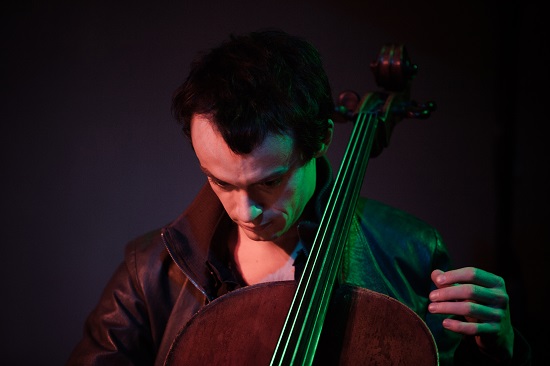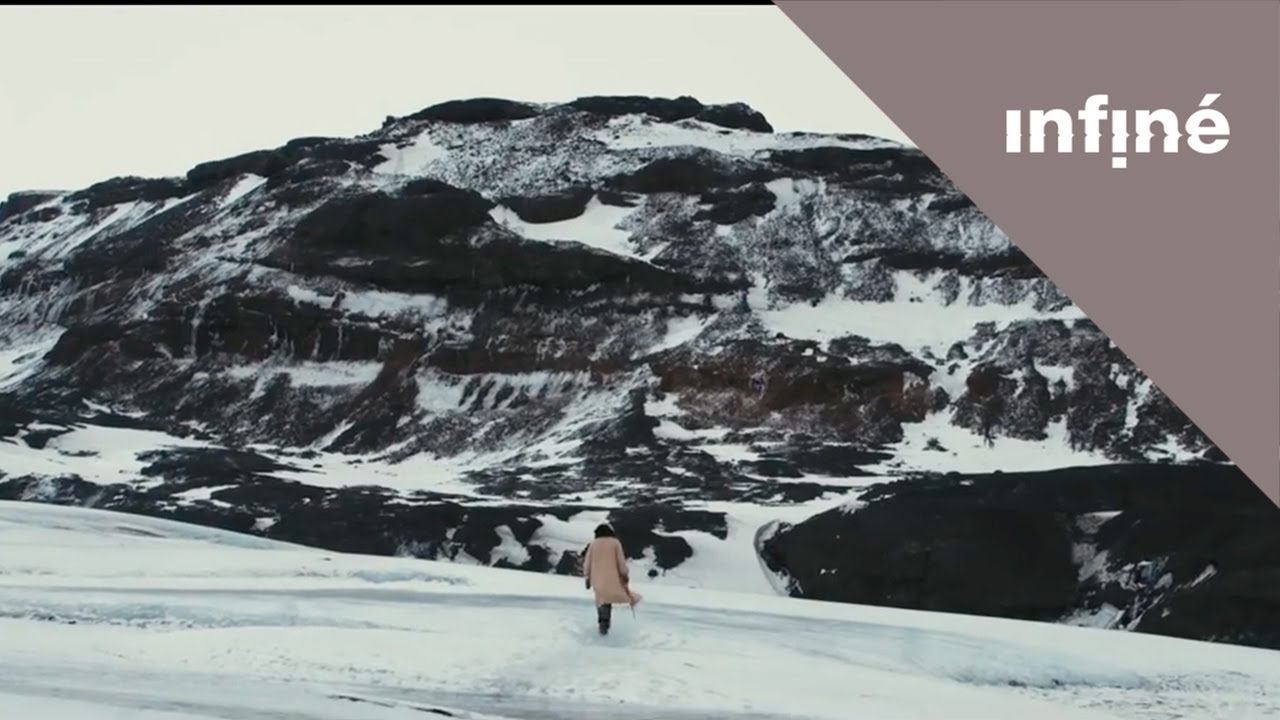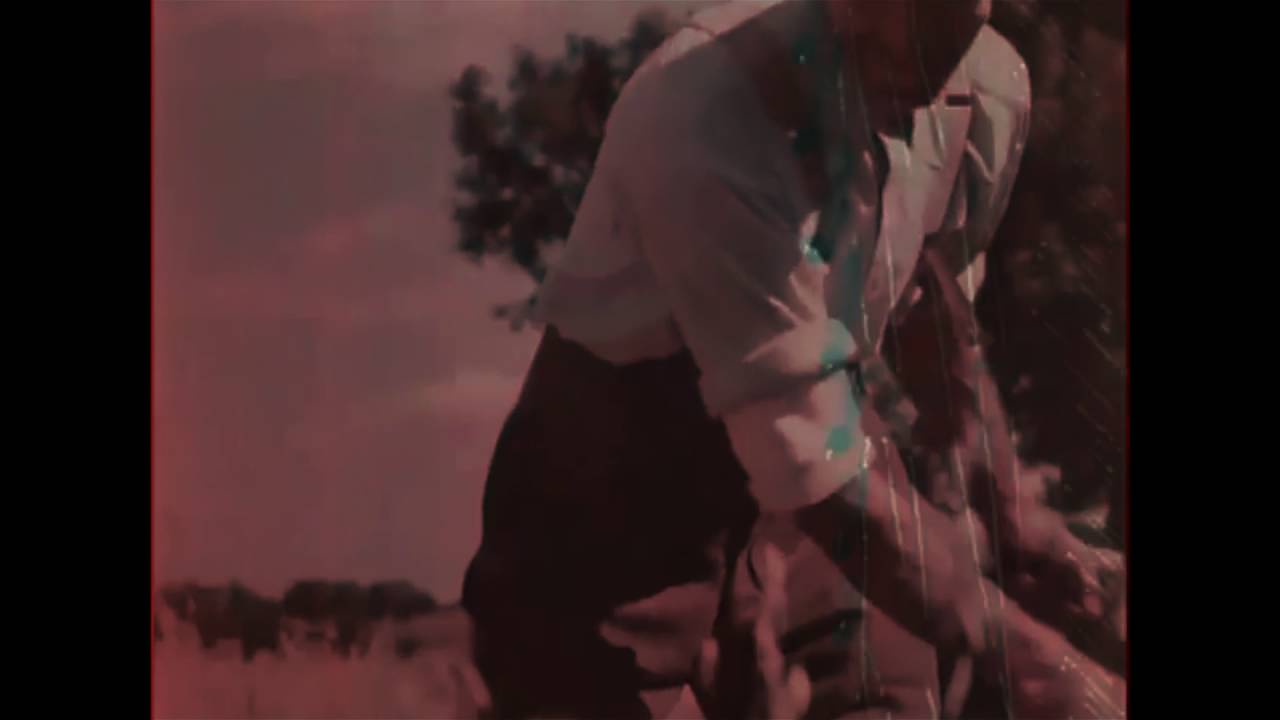Cellist Gasper Claus is one of those figures in music that can lurk on the fringes of your consciousness, a name that becomes increasingly, naggingly familiar until you finally realise how many times you’ve already crossed his path. Not just on French projects (although he’s worked with Stranded Horse and Rone to name just a couple) but also with his sister Clara’s partner Bryce Dessner of The National, Jim O’Rourke, Sufjan Stevens… (He brought a number of these together in Brooklyn in 2012 that resulted in the One Night Stand album and film.)
He’s obviously more – much more – than a session musician, but at the same time seems perfectly content not being the main man. When he talks about his musical life there is a sense both of belonging and not-belonging, of being broadly at home in the world and exceedingly well connected while also being aware of existing in a category of one, not entirely comfortable in any club that would have him.
His fluent but rasping sound is shaped by both his classical training, at the Conservatoire in Perpignan, and afterwards his explorations into the broader timbral scope of his instrument. Recently, it has made an appearance on two vividly haunting essays in different folk styles: Al Viento, his second collaboration with his 78-year old father, flamenco guitarist Pedro Soler, on the InFiné label, and Jo Estava Que M’Abrasava , featuring Majorcan and Menorcan work songs sung by Marion Cousin (“very stable and solid and quiet singing”, says Claus) and released on Claus’s own new imprint Les Disques Du Festival Permanent.
And coming soon is a recording from the Vacarme trio with the equally distinctive violinists Carla Pallone (Mansfield TYA) and Christelle Lassort, and another with Efterklangs’s Casper Clausen. The sheer work-rate is impressive enough but it’s the curiosity, lyricism and sheer bare-boned intensity he carries with him into any project that makes his labour and his ceaseless wandering so precious.
I’ve seen your time at conservatory in Perpignan described as one of rebellion – did you find yourself arguing over the musical approach, or did you just quietly realise it wasn’t for you and move on?
Gaspar Claus: I was a teenager! That was a time of rebellion anyway, in anything. But I spent lots of hours in the conservatoire and learnt how to play cello in the most classical way. I had four teachers, each of them very different. They taught me several approaches to the instrument. Some were purely technique, other tried to give me the sense of emotion in music, of what we call the “phrasé”. But yes, I was surrounded by many other pupils who were competing to see who could play the most notes in half a minute. And after a certain level I was told I’d have to take the best seat in the orchestra, a seat that was occupied by somebody else. I didn’t like that competition.
I was more into some strange workshops, mostly proposed at night by other teachers, like a group made up of the jazz teacher and the dance teacher and the theatre teacher. This was happening at night, in the basement, and seemed to be more powerful through being kept secret. It was about total improvisation exercises, multi-instrumental and cross-disciplinary. I did bring some friends of mine, one who was a poet, another who was a painter.
And the beauty of it is that after a year, we could tell very definitely that we’d made good progress. So it wasn’t bullshit, we were learning something. With no exams, no scores, no real plan, each time starting from zero, we were getting better.
But no, there was no rebellion against conservatory. Later on I started unlearning what they taught me, exploring some regions of my instrument where the sound isn’t clear and considered as beautiful but where it’s way more dynamic, rich in asperities. They taught me to use my bow on eight cm of the instrument but I later discovered that the whole instrument generates sounds when played. To unlearn you need to have learnt something first. I don’t regret a drop of my lessons at music school.
Portrait by Ryo Mitamura
The number of people you’ve worked with is dizzying. What do you look for in a new collaborator?
GC: I’ve always been scared of becoming something. I fear the fact of jailing myself in any circle or group of people or specific work or specific style of music. I guess it is because I don’t want to close myself to other possibilities. But it is also because I witnessed people growing and starting to speak only to those who are similar to them. This makes me run away, people who don’t experience difference anymore.
I prefer to feel uncomfortable by participating in projects were I am not the specialist. I am always the one who knows nothing. Playing with jazzmen and knowing nothing about jazz. Playing pop music and knowing nothing about how to structure a pop song. And the funny thing, which still surprises me, is that I continue to be invited to play by new people, from different areas, every day. Maybe they get a fresh breeze by inviting a non-specialist to join their regular activities. And I rarely say no, since most of these projects and people are ones I really love. I don’t think I’d be happy if one of these projects became a great success – I prefer to continue jumping from a world to another one.
The most difficult part of this is that I end up playing with people that will never understand each other. They’ve founded their outlook on the idea of being radical, not compromising, rejecting what they decided to call “bad music” and a lot of the time the next day I’ll be playing with someone who strongly represents what they call shit music. And they can be very virulent about that.
This is something I still don’t really know how to manage. For every project I am involved in there will be a friend, a collaborator, who will consider that I am selling my soul to the devil named “bad taste” or “corruption”, because it’s either too mainstream, or pretentious because it’s too underground.
Can you explain how the Al Viento album relates to flamenco’s traditions? I don’t have enough of knowledge of flamenco myself to know whether, for example, those slowly ascending glissandos you use are drawing on anything you’ve heard previously.
GC: My father is a strong guarantee that the presence of every ingredient that makes each track on the two albums we recorded together are entirely flamenco. He builds a frame with rhythms, and harmonies and a structure that fully respect the style we are exploring.
Inside that frame I have total freedom of expression with my cello. Even if I exit the frame, which I rarely do, I know I am out, and there is a reason for me to venture outside it while he keeps holding that tight structure.
This expression, inside the frame, comes after having listened to many ancient records that Pedro introduces me to when we start working on a new style. The styles are named on Al Viento – ‘Petenera’, ‘Malaguena’ ‘Serrana’ etc…). We listen together to these old voices. They each have their own interpretation and incarnation of the style. I just listen to them many times. I try more to distil the energy they use to sing than the specific notes and phrases. This is what we try to reach, that the cello takes the role of the voice in flamenco. Pedro says it works. I trust him!
When it comes to folk styles, do you feel you need to capture some kind of ‘authenticity’? How do you define that? Is something more authentic if it’s grainy and raw-sounding?
GC: With folk music, I believe a tradition has a strong identity when it focuses on the texture of the sound, more than the format of a tradition. I really believe the electric guitar of Keiji Haïno is a vivid incarnation of the same musical tradition as biwa players from 11 centuries ago.
I think it is important for a tradition to not forget to whom it is addressed. Some music is meant to be played to goats in order to help them produce good milk – this is the case of the overtone chanting in Mongolia. Some types of music are made to help a child to become an adult, others are to help a man to connect to the invisible world, others are addressed to the gods. It is still beautiful when you see that music on a western stage, but I wouldn’t call it traditional folk music anymore. I’d rather define this as a museum-like approach. I have nothing against museums, but I don’t think they house any vivid, authentic tradition.
The Western tradition is mostly addressed to a public that has a critical mind, and judges the quality of the writing, of the interpretation. And I think it is a great tradition! It pushes the musicians to always go further, and to never stop pushing the limits and explore what can be done with sounds. And great pieces of art were born from that tradition.
But in my opinion some music is not originally supposed to belong to that specific tradition. It loses its nature when put on a Western stage.
Family links are clearly important – not just your father but also The National and Bryce via your sister. Do you try to reproduce the sense of family across all your projects?
GC: This would be a very large family! Quite complex, with many different characters. I haven’t really thought about family in my work. I simply play with people I meet. They mostly become friends. There is something like a great community of people around me, but this does only exist in my mind. All these people are my family, they are not a family. They mostly don’t know each other.
My father would answer “I don’t play with my son, I play with a musician I like to play with”. Which I respect, but I don’t really agree on that. He sometimes also says that to play with somebody is like making love… which can be a bit embarrassing coming from my father! We are related, and I believe in our music we express things that belong to our relationship. I’d say this is very strong with my father – I even believe we sometimes express things that are not easy to say with words to a father – but I can also feel this with any musician I play with. So yes, there is something more than music with the people I play with.
And you’re setting up a label? Is that wise in this day and age?
GC: Haha! This exactly how I present it. To sell music in 2016 seems to be the worst idea I’ve had in my life. All my income is swallowed by this, and it is a full time job, which is not easy to adapt to my already full-time job as a cellist.
But, with all these projects, in so many different fields, I really needed to find some coherency in my activities. And if was to start looking for a label for each project I would have to sign with so many different labels I’d have lost myself in this. So the solution was to do it myself.
I was not part of the golden age of the record industry, when musicians and producers were making real money. So I have no nostalgia about that time and I enjoy trying to build a new economy, a more humble one. And since I expect to sell only niche music, I feel quite solid, in this little economy. I know we will not become rich with this, but this is not the goal. And I know there are still people who are happy to pay for the music they listen to. So yes, this label is a crazy project, but it totally make sense in our crazy times! Artists needs to become autonomous now that the infrastructures are not helping them anymore.

Do you have a stable base anywhere?
GC: My apartment is in Paris. I am barely there. I love being back home though. I also spend quite a lot of time in my hometown, in the south of France, where I’m rebuilding a very ancient farm in the summertime, with friends. I love feeling exhausted after a day of hard work, using my body.
We always dream about another life. My friends who have to stay in town they always tell me “What a life you have! Always on the move” and I say I’d love to spend more time quietly at home. Always being always on the move has strange consequences. I meet so many amazing people, for a night, or sometimes just a few days. And I know they are not going to become people I communicate with every day. Life becomes very ephemeral.
The thing I have really enjoyed lately is to realise I know people, and good people everywhere. What I enjoy is meeting people, staying at their places, discover a city that way. And I found out this can be done because there is always a potential friend anywhere. I have the luck to have old friends who stay friends for eternity. They are my stable basis, my territory.
Listen to Gaspar Claus at Les Disques Du Festival Permanent bandcamp
Rockfort Quietus Mix 3 – July 2016 Tracklist
Airelle Besson – ‘La Galactée’ (Naïve)
Bachar Mar-Khalifé – Lemon feat. Yola Khalifé (InFiné)
Sphyxion – Sphyxion 11 (Anywave)
Débruit – Kaçiyorum feat. Gaye Su Akyol (ICI)
Neue Grafik – Dan Kanaka (Beat X Changers)
Jardin – Blackfish (Le Turc Mecanique)
Papier Tigre – Mood Trials (Murailles/Function)
PoulainJars – Le Calme (from La Souterraine compilation ‘Vous Et Nous’)
Colder – Pass and Go demo version (Bataille)
Pedro Soler & Gaspar Claus – Rocio Y Corrales (InFiné)
Delacave – Territory (Le Turc Mecanique)
Heldon – Les Soucoupes Volantes Vertes (from Because Music compilation ‘Cosmic Machine 2’)
Judith Juillerat – J’Habite Un Astre Ridé (Lentonia)
Erotic Market – So Long (Mutant Ninja)




